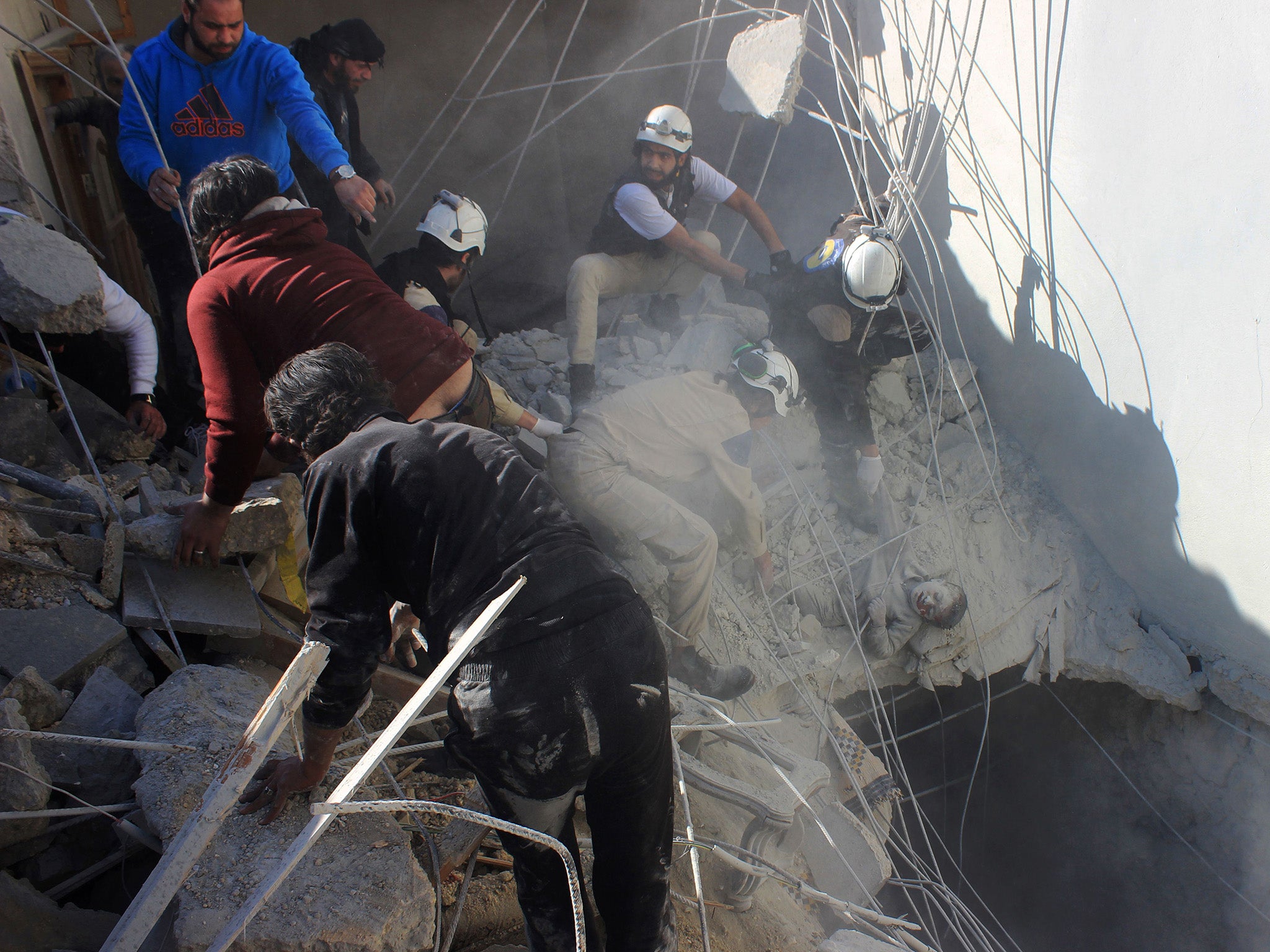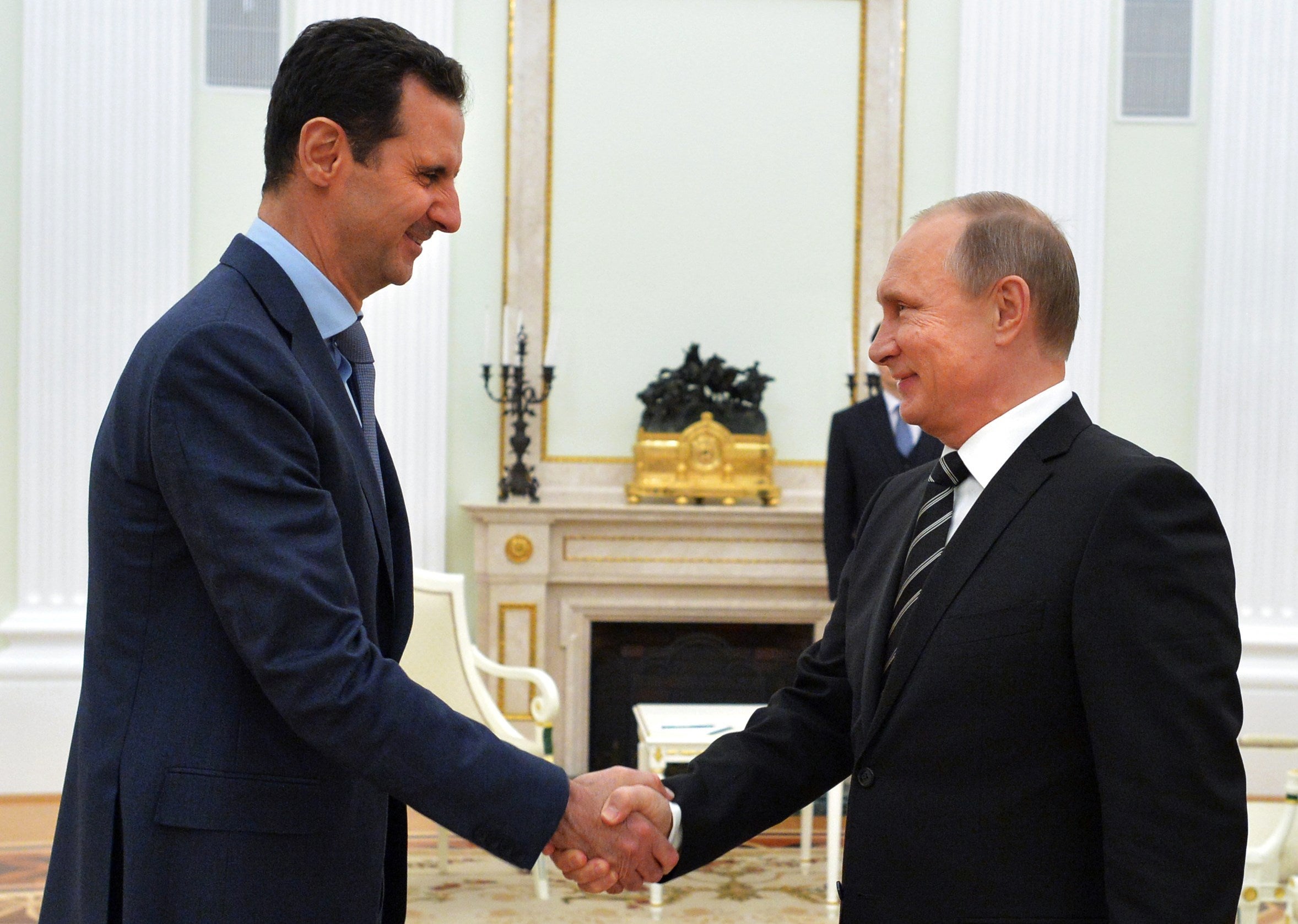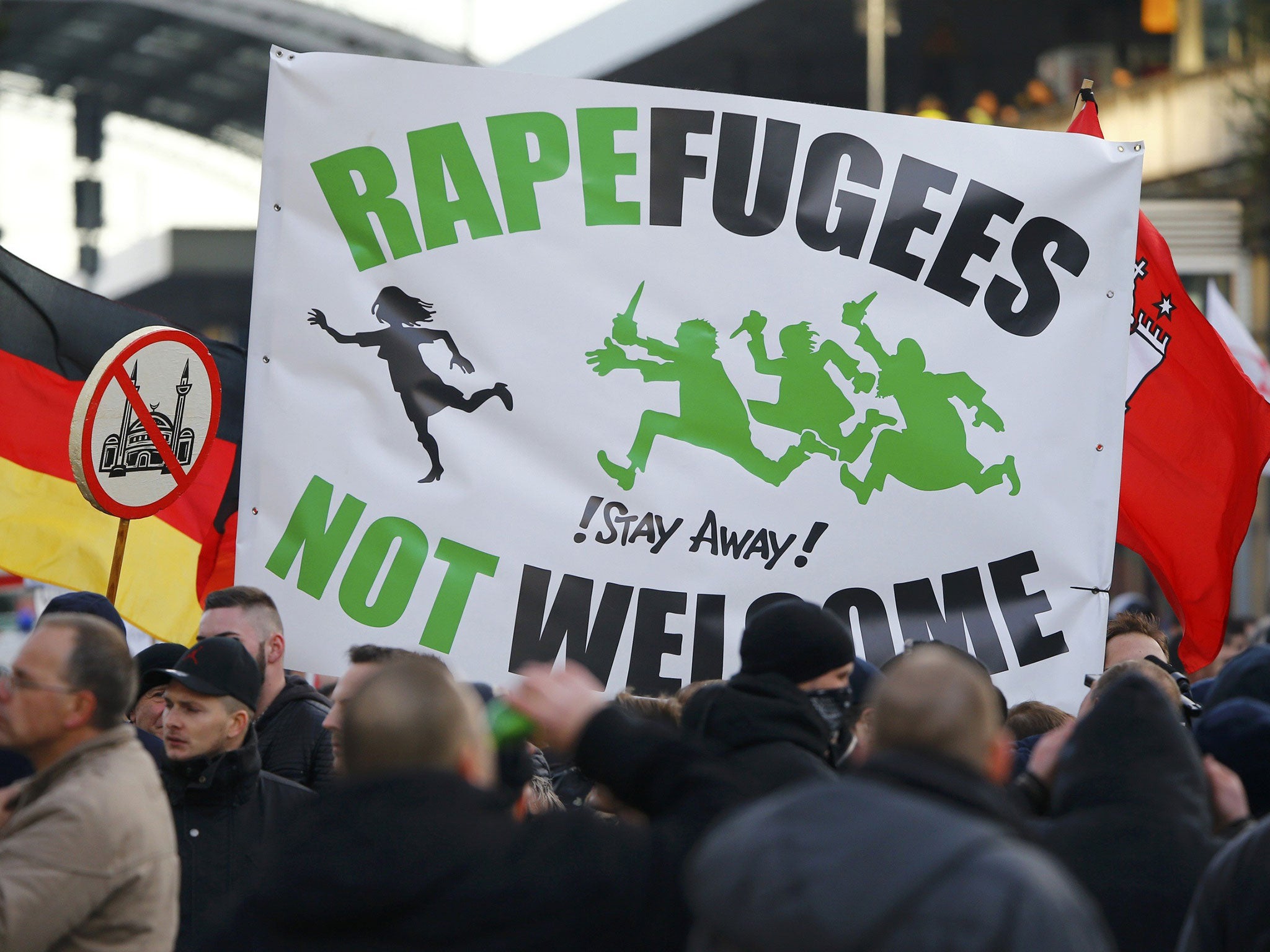Russia and Syria 'weaponising' refugee crisis to destabilise Europe, Nato commander claims
General Phil Breedlove claimed civilians were being deliberately bombed to drive migration to Europe
Your support helps us to tell the story
From reproductive rights to climate change to Big Tech, The Independent is on the ground when the story is developing. Whether it's investigating the financials of Elon Musk's pro-Trump PAC or producing our latest documentary, 'The A Word', which shines a light on the American women fighting for reproductive rights, we know how important it is to parse out the facts from the messaging.
At such a critical moment in US history, we need reporters on the ground. Your donation allows us to keep sending journalists to speak to both sides of the story.
The Independent is trusted by Americans across the entire political spectrum. And unlike many other quality news outlets, we choose not to lock Americans out of our reporting and analysis with paywalls. We believe quality journalism should be available to everyone, paid for by those who can afford it.
Your support makes all the difference.Russia and Syria are indiscriminately bombing Syrian civilians to drive the refugee crisis and “weaponise migration”, a Nato commander has claimed.
General Phil Breedlove, Nato’s Supreme Allied Commander for Europe and head of the US European Command, said weapons such as barrel bombs have no military value to hit precise targets and instead serve to terrorise those living in rebel-held territories.
He told the Senate Armed Services Committee that the destruction formed part of a deliberate strategy to “get them on the road” and “make them a problem for someone else”.

“Russia’s entry into the fight in Syria has exacerbated the problem, changing the dynamic in the air and on the ground,” General Breedlove told politicians including Senator John McCain.
“Despite public pronouncements to the contrary, Russia has done little to counter Daesh (Isis) but done a great deal to bolster the Assad regime and its allies.
“Together Russia and the Assad regime are deliberately weaponising migration in an attempt to overwhelm European structures and break European resolve.
“All genuinely constructive efforts to end the war are welcome but actions must speak louder than words.”
Vladimir Putin launched Russia’s intervention in Syria at the request of Bashar al-Assad in September and the Kremlin’s air strikes have supported a significant regime advance against the opposition.
Moscow has insisted Isis is its main target but opposition groups and Western leaders have alleged its strikes have mainly targeted areas controlled by the opposition, killing countless civilians.
The Russian President helped broker the continuing ceasefire between regime forces, “moderate” opposition groups and their respective backers but Isis, Jabhat al-Nusra and other UN-designated terrorist groups were not party to the truce and fighting continues, albeit on a much smaller scale.
In the run-up to the “temporary cessation of hostilities” that started on Saturday, Russian and Syrian forces were accused of deliberately targeting hospitals and civilian infrastructure in possible war crimes.
In a report released on Thursday, Amnesty International claimed it has “compelling evidence” of at least six deliberate attacks on medical facilities in the Aleppo governorate over the past 12 weeks.

The regime’s advance sparked a new flood of refugees into Turkey as asylum seekers continued to arrive on Greek islands at roughly 10 times the rate they were during the same period in 2015, which was a record-breaking year.
General Breedlove repeated concerns that Isis can exploit the crisis to send its fighters into Europe, as it did before November’s Paris attacks.
He said that the flow of migrants crossing the Aegean Sea was “masking the movements of criminals, terrorists and foreign fighters”.
“Within this mix, Isil (Isis)or Daesh is spreading like a cancer, taking advantage of paths of least resistance, threatening European nations and our own with terrorist attacks,” he added on Tuesday.
The US Army in Europe (USAREUR) is working with American agencies and international allies to track returning fighters and share intelligence on suspected extremists.
In his written evidence to the US committee, General Breedlove said public opposition to the welcoming of refugees in some European countries could also pose a security risk.

“Local nationalists opposed to a large-scale influx of foreigners could become increasingly violent, building on the small number of attacks against migrant and refugee housing observed to date,” he noted.
The UN’s former High Commissioner for Refugees, António Guterres, has urged countries not to use the threat of terrorism to turn their back on the hundreds of thousands of asylum seekers continuing to flee conflict and persecution.
“It is not the refugee outflows that cause terrorism, it is terrorism, tyranny and war that create refugees,” he said.
“It is clear that the Daesh (Isis) strategy is not only to set Europeans against refugees, but within Europe, to set citizen against citizen within communities, community against community within countries, and country against country in the Union.”
More than 133,000 migrants have arrived in Europe by sea so far this year, according to the UNHCR, with at least 400 drowning in the attempt.

Join our commenting forum
Join thought-provoking conversations, follow other Independent readers and see their replies
Comments